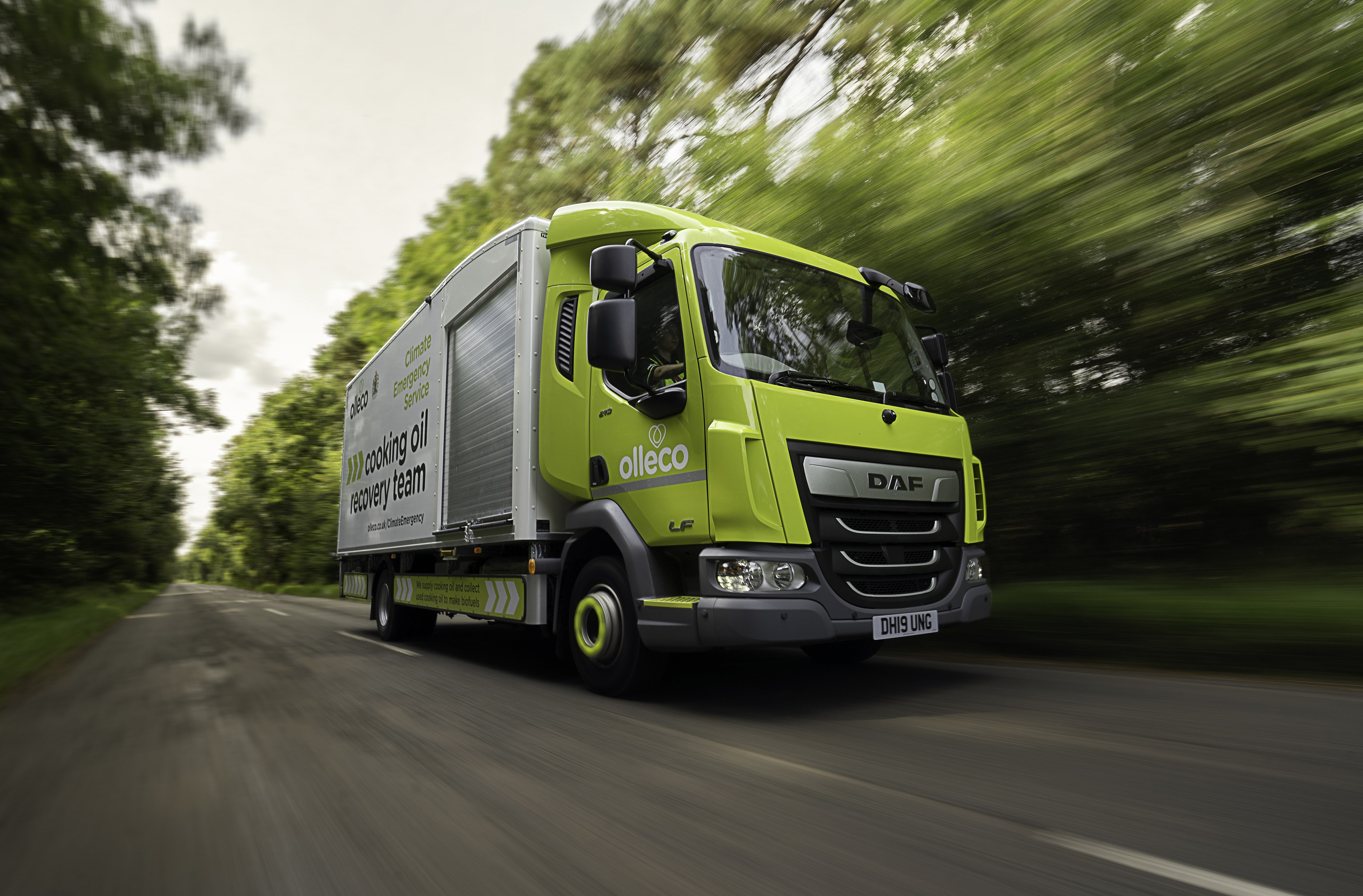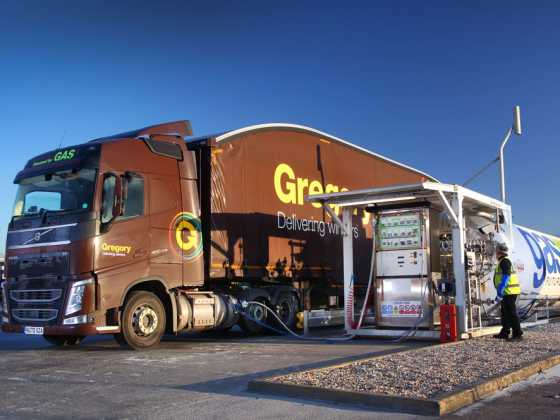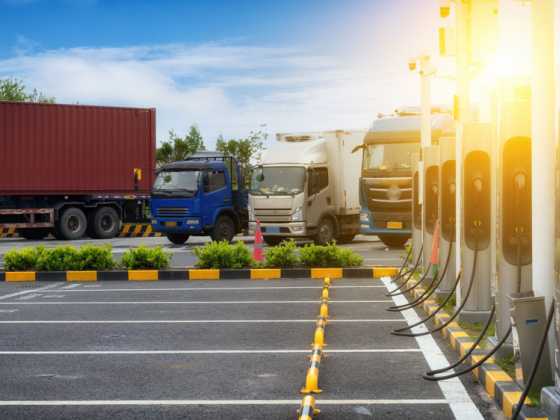Accelerating the transition to zero in UK freight

While there is no date yet, the government is consulting on when it would be feasible to ban the sales of diesel trucks. HGV operators will need to keep their eyes firmly on the ball on present and emerging low and zero emission technologies, as well as what they can do now to decarbonise their operations
Written by Brian Robinson, Commercial Vehicle Emissions Consultant, Zemo Partnership
When, two years ago, the UK became the first major economy to pass a law requiring the UK to bring all greenhouse gas emissions to net zero by 2050 it was clear that aiming for ‘low carbon’ was no longer ambitious enough.
In the subsequent ‘Ten Point Plan’ the implications for road transport became clearer with the signalling of a rapid move to zero tailpipe emission vehicles and clean energy to power them.
One, amongst several, responses of the, then, Low Carbon Vehicle Partnership was to begin steps to change the name and brand to a moniker that better reflected where we’re heading in road transport.
So, LowCVP became Zemo Partnership, the new name intended to help convey the sense of urgency with which we need to transition to zero emissions in transport. While much of the media focus has been on the phase out of petrol and diesel in cars and vans, the critical role of commercial vehicles is also now receiving much attention.
There’s been no sense of the pace of change slowing either; rather the opposite. In April this year, the Government raised the stakes again in agreeing with the watchdog Committee on Climate Change’s targets for the Sixth Carbon Budget. A new legally-binding commitment to cut greenhouse gas (GHG) emissions by 78 per cent by 2035 is expected to be backed by Parliament in July.
Keeping check of reality
Freight operators can’t fail to be aware that a ban on sales of diesel trucks is being strongly mooted as policy to follow the 2030/5 phase-out of petrol and diesel IC-engines in light vehicles and will be the subject of a consultation.
However, many have pointed out that the rhetoric is running way ahead of the policy and practical reality. The Government’s own figures show that current plans still leave the UK “a long way short” of what is required, the CCC says.
The policy ‘gap’ will, we hope, be at least partly filled with the imminent publication of a new Transport Decarbonisation Plan.
Electrification of transport in all its forms, will be front and centre of the Plan and, though there are many doubters about the prospects for electrifying some freight applications, recent studies have been bullish about the chances of technical advances and cost reductions leading to inroads into every area of the truck sector.
A new report from the US Dept of Energy’s Lawrence Berkeley National Laboratory and the University of California, for example, says that zero emission freight vehicles are becoming an increasingly realistic prospect due to dramatic declines in battery prices and improvements in their energy density.
The report says that at current global average battery pack prices of $135 per kilowatt-hour (kWh) (realizable when procured at scale), a Class 8 electric truck with 375-mile range and operated 300 miles per day when compared to a diesel truck offers about 13 per cent lower total cost of ownership (TCO) per mile, leading to a three-year payback. Battery prices are projected to decline to about $60 per kWh by 2030.
The study says, however, that strong policy support will be needed to see these prospects realised soon. Researchers make the case for prioritising public policy, including early-adopter subsidies, to help electrify long-haul trucking, which they say, would deliver huge emissions reductions.
Some significant electric trucks are on the market already. Scania, Renault and Volvo have recently launched a range of medium and large electric trucks and more are promised from these and several other manufacturers. Tesla’s Semi is expected to go into production in the US later this year and new entrant Volta Trucks has just launched four fully electric trucks up to 19 tonnes.
Low emission freight trials
Zemo Partnership (as LowCVP) was a leading partner in the Low Emission Freight and Logistics Trials (LEFT) which reported last autumn. LEFT was a £20 million government-funded programme (2017-2020) to cut emissions and improve air quality by focusing on emissions-busting technologies for trucks and vans (and their fuels). An additional £12m was contributed by private sector trial participants.
In these industry-led trials, everything from renewable hydrogen fuel and battery electric trucks through to biomethane fuel, kinetic energy recovery systems and even lightweight and aerodynamic trailers were put through their paces. They’ve been trialled in all driving operations to show how low and zero emission alternative technologies can make a difference both now and in the future, in UK fleets.
The report categorised each technology as ‘Revolution’, ‘Transition’ or ‘Evolution’ depending on the potential contribution to the net zero agenda. Revolution technologies included battery electric vehicles, while transition technologies were range-extended electric vehicles (REEV), dedicated gas vehicles and those powered by hydrogen/gas dual fuel. Evolution technologies included lightweight & aerodynamic trailers and kinetic energy recovery systems (KERS)
The trials found that a wide range of all these categories of technology and alternative fuels can all help to decarbonise commercial vehicles and road freight both in the next few years and further, to 2050.
The report showed that there is an acceleration in the rate of innovation towards lower emissions in the freight sector but there’s still a long way to go and we’re still working on developing our understanding of the best technical options for different uses.
The LEFT programme has significantly added to our understanding of the different options and shines a light for fleet managers on the directions they can take now to cut emissions from their fleets.
For many, the ‘revolutionary’ technologies are not yet perceived to be a viable option, especially for long-haul and heavier trucks.
For this reason, Zemo Partnership has been working with Government on developing the trials of future zero emission truck technologies but also to raise awareness about how, in the short to medium-term, significant emissions cuts can be achieved through the adoption of renewable fuels for freight uses.
Renewable fuels
Renewable fuels can realise greenhouse gas well-to-wheel emissions reductions of over 80 per cent and help to ensure that the UK meets the legal nearer-term targets such as the UK’s Fourth and Fifth Carbon Budgets.
A study recently published by Zemo Partnership shows the range of high blend renewable fuels (HBRF) available to the HDV sector.
To provide operators with better information about the fuels they’re using and to support the HBRF report, Zemo Partnership recently also launched a new Renewable Fuels Assurance Scheme (RFAS) for high blend renewable fuels. The scheme gives fleet operators robust information about the GHG and wider sustainability performance of renewable fuels supplied in the UK.
The RFAS approves companies supplying high blend renewable fuels based on meeting three key performance criteria, with evidence verified by an independent auditor complementing the safeguards included in the Renewable Transport Fuel Obligation (RTFO).
As well as the challenge of decarbonisation, many operators need to tackle air pollution and are faced, in particular, by the introduction of clean air regulations in various cities around the UK.
Retrofit technology
Zemo Partnership recently published an updated Clean Vehicle Retrofit Technology Guide to highlight the role that various retrofit technologies can play in improving air quality by cleaning up the existing vehicle fleet.
The new guide gives vehicle operators and local authorities an understanding of national frameworks for improving air quality, providing case studies of a range of accredited retrofit technologies that achieve Euro VI-equivalent levels of emissions through the Clean Vehicle Retrofit Accreditation Scheme (CVRAS).
It’s clear that the freight sector will continue to come under increasing pressure to move to zero emission solutions but where electric or other options are not yet available, by using renewable fuels and Euro VI level retrofit emission controls, operators can dramatically decarbonise and cut locally polluting emissions in their current operations and vehicles.
Electric – and, potentially, hydrogen – solutions are coming down the track (are even here today in some incarnations) and will increasingly vie for operators’ attention. Operators will need to keep their eyes, more than ever before, firmly on the ball and to accelerate the introduction of the most suitable low and zero emission technologies for their particular operating profile.
Zemo Partnership is a membership organisation working with government and focused on delivering the transition to zero emission in road transport.






